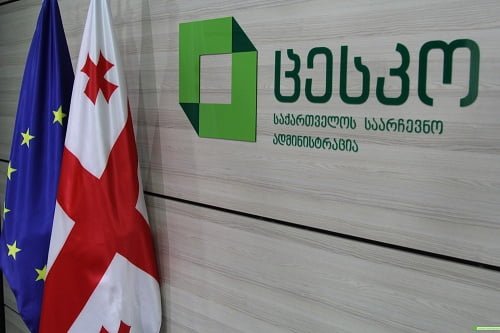
CSOs Assess 2022 Amendments to Election Code
In a joint report released on January 31, three local civil society organizations – Transparency International Georgia, the International Society for Fair Elections and Democracy (ISFED), and the Georgian Young Lawyers’ Association (GYLA) – assessed the 2022 amendments to the election code and how they reflect the main findings and recommendations of the OSCE/ODIHR.
Several amendments to the Election Code are assessed positively by the CSOs. Still, they point out that several essential recommendations, including those made by the Venice Commission and the OSCE/ODIHR in December 2022, have not been considered.
- 10/10/2022 – Parliament Speaker Requests OSCE/ODIHR, Venice Commission Review of Electoral Code Changes
The report begins with pointing out the lacunae in the composition and work of the Parliamentary Working Group on Electoral Reforms, established as part of the Georgian government’s efforts to address the European Commission’s 12 candidacy recommendations. The parliamentary opposition refused to participate in the working group, while the involvement of CSOs was, the report says, hampered by “undue obstacles” created by the Georgian Dream party, pointing to the exclusion of ISFED, an election watchdog, “in a discriminatory manner” which prompted other leading CSOs to quit the working group in solidarity.
Electoral amendments
The CSOs welcomed the proposal for e-registration and e-voting but worry that the adopted amendments regulate only general provisions while entrusting the Central Election Commission with making all the key decisions, giving it excessive control without defining essential criteria related to the rules, means, and procedures for electronic voting. Some such criteria pertaining to the existence of precise plans for e-voting, as well as the size of the voters assigned to the stations and the scope of access, procedures for appeals, etc, were suggested by the Venice Commission and the OSCE/ODIHR but are ignored in the amendments to the law, the report says.
The civil society organizations welcomed the introduction of certification of commission members and officials for the composition of precinct election commissions but noted from experience that the ruling party still informally controls the process of selecting “professional” members of the CEC.
The report also considers positive the expansion list of duties incompatible with membership in a precinct election commission, “thus excluding the possibility of electing the persons affiliated with parties and party donors.”
Other amendments
The report welcomes the introduction of an imperative obligation to open the records and recount the votes in case the summary protocols do not add up. However, they also note that to increase confidence in the process, it is important that the district electoral commissions recount the results of all those precinct electoral commissions, wherever the total sum of both received votes and annulled ballots exceeds the total number of voters even by one vote.
The report agrees with the extension of the time period for consideration of complaints. It welcomes the new regulations concerning disciplinary responsibility on a member of a precinct election commission.
CSOs agree with increasing the fines for abuse of administrative resources but note that, in practice, it is not the amount of the fine that matters, but the reluctance of the election administration to impose penalties for abuse of administrative resources.
The report also considers it a positive development to limit the total amount of annual campaign expenses by a party not to exceed 0.05% of the GDP the previous year. CSOs think this is insufficient to address the recommendation by the Venice Commission and OSCE/ODIHR to “to harmonize the high limits for campaign donations with international best practices.”
Recommendations
CSOs recommend to:
- Implement a comprehensive and inclusive electoral reform as soon as possible, in line with the advice of the Venice Commission and the OSCE/ODIHR, based on a comprehensive and in-depth analysis of the existing problems in electoral legislation and practice.
- Take into account the conclusions of the Venice Commission and the OSCE/ODIHR on various draft laws, as well as the recommendations made by election observation missions on various occasions, including by restoring compromise provisions of April 19, 2021, political agreement; abolishing an unjust rule that deprives a political party of budget funds due to specific actions of its members in the Parliament; specifying in more detail usage of electronic technologies in the election process, etc.
Also Read:
- 19/08/2022 – Ruling Party Criticized for Refusing ISFED at Electoral System Reforms Group
- 22/08/2022 – CSOs Urge Ruling Party to Include ISFED in Working Process
This post is also available in: ქართული Русский